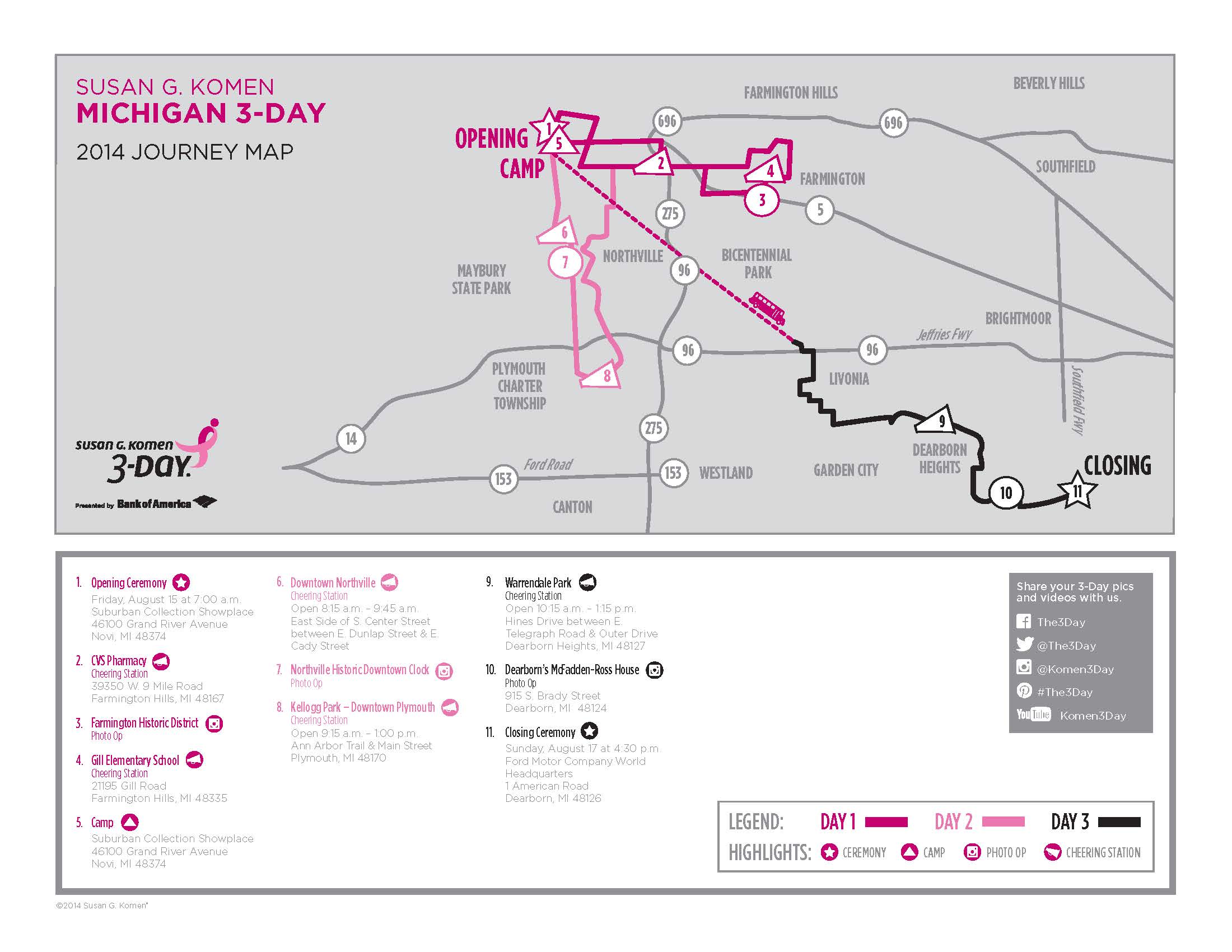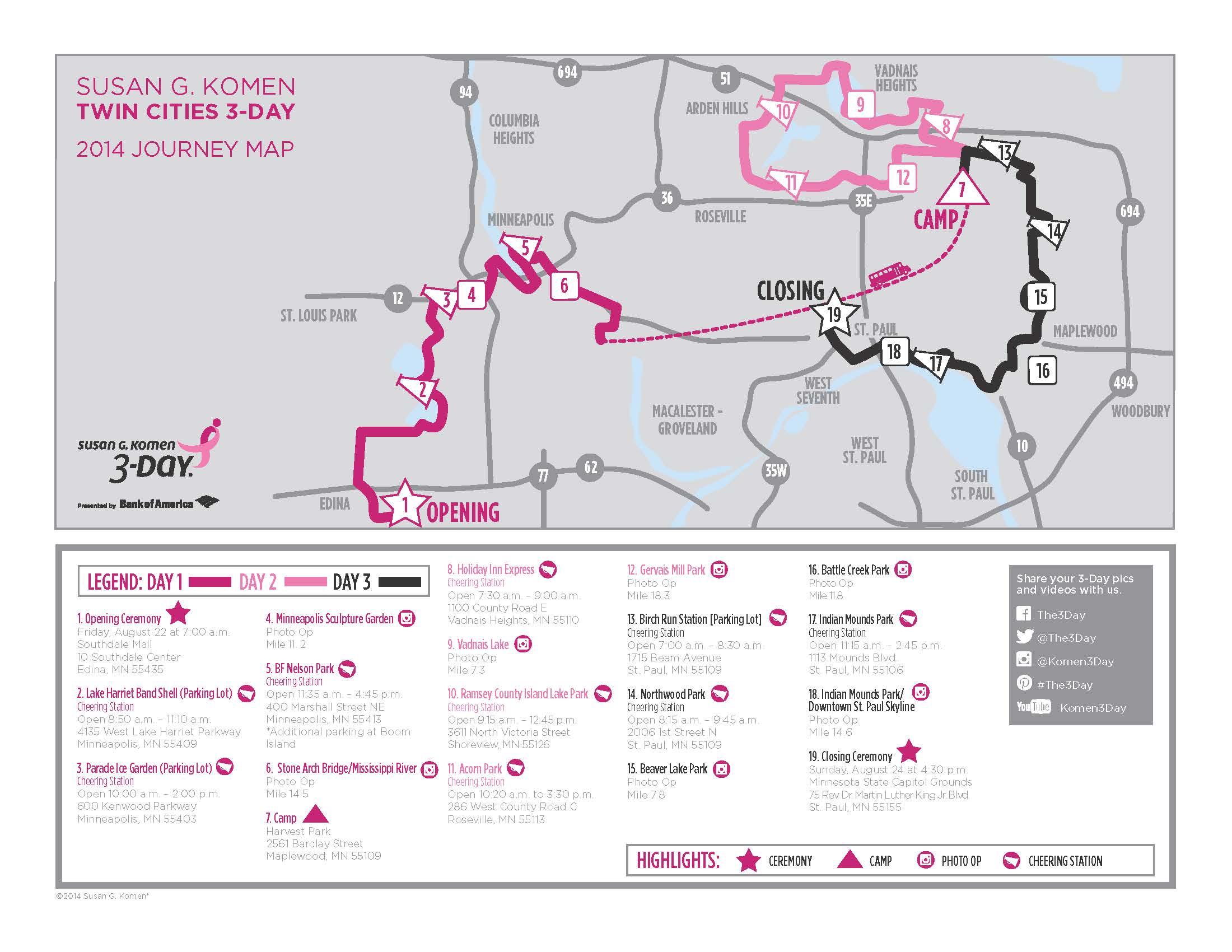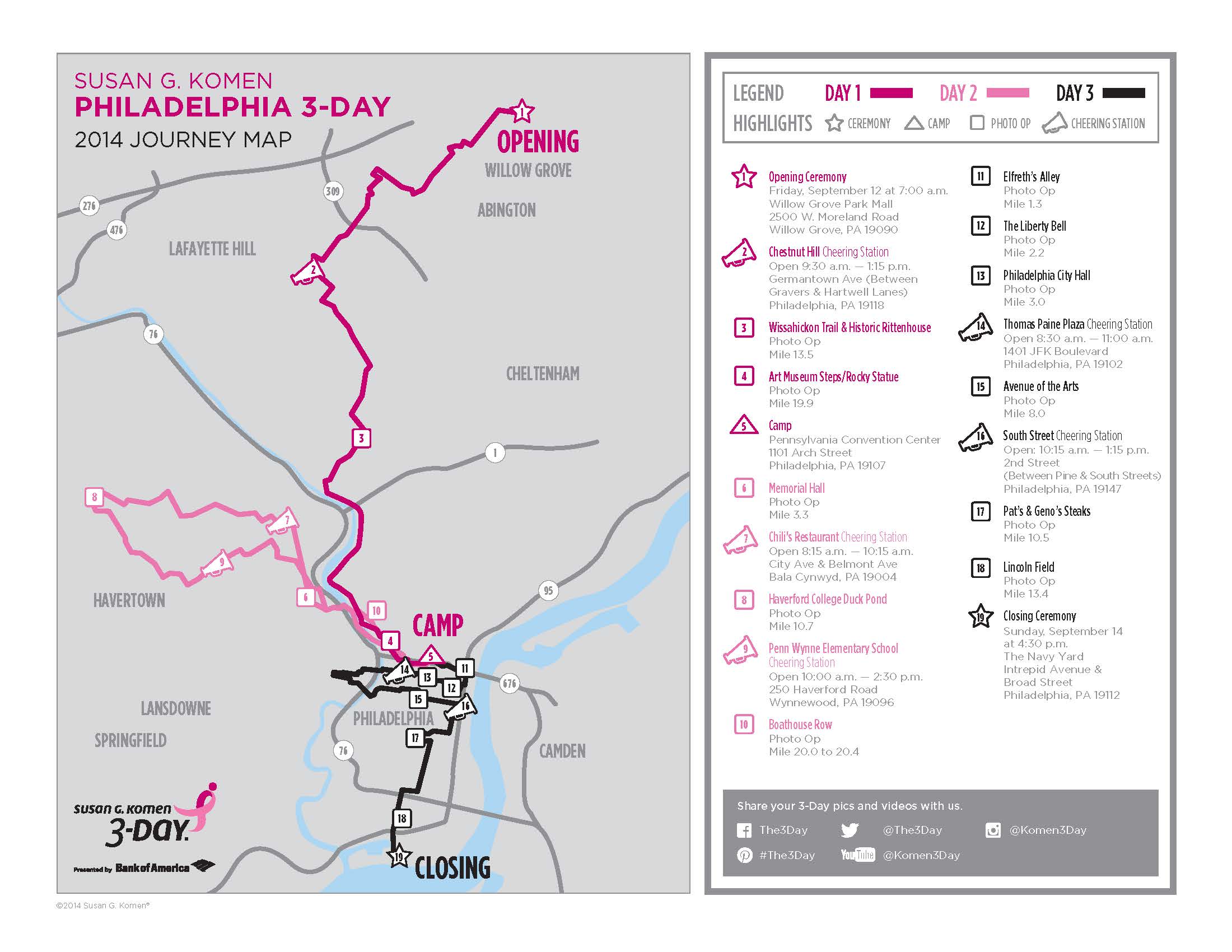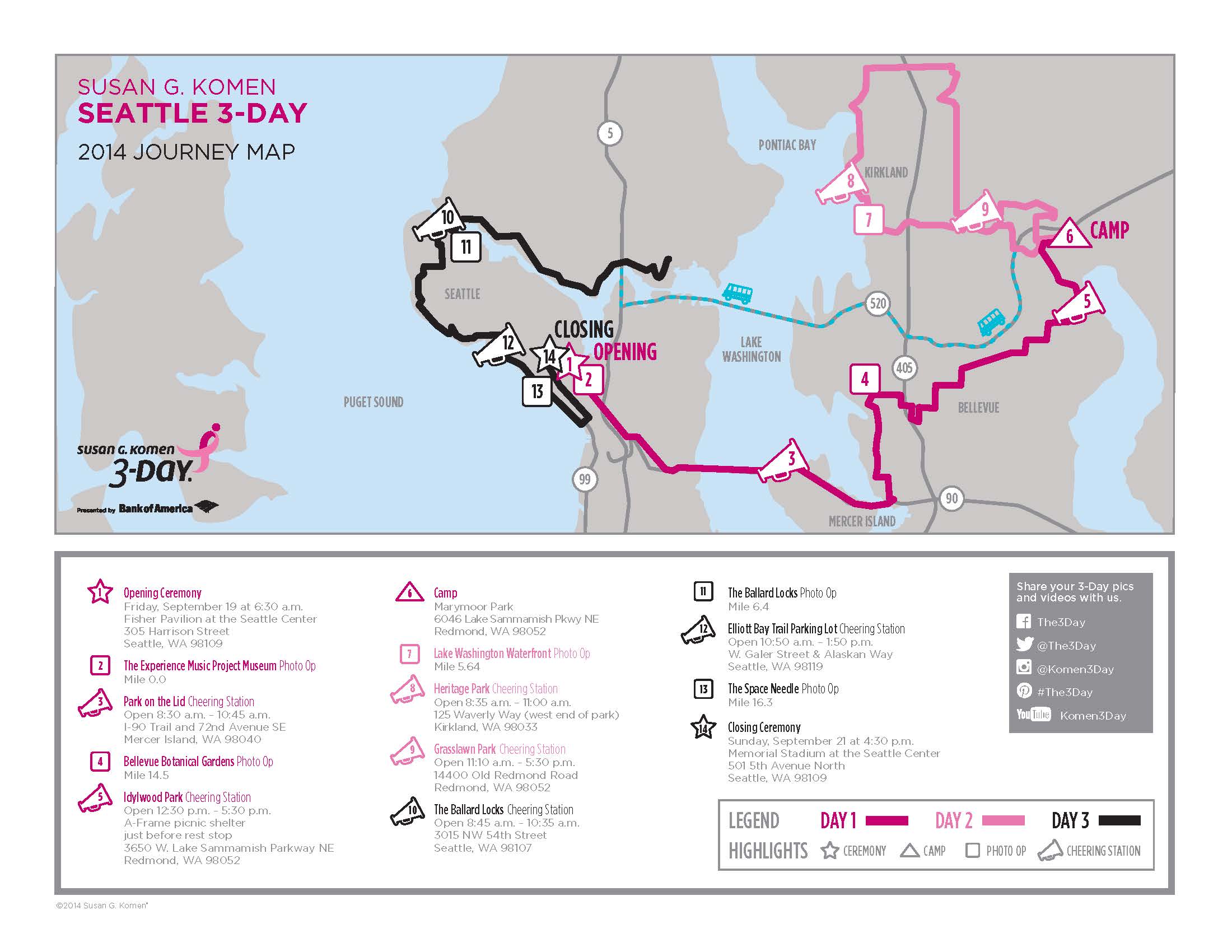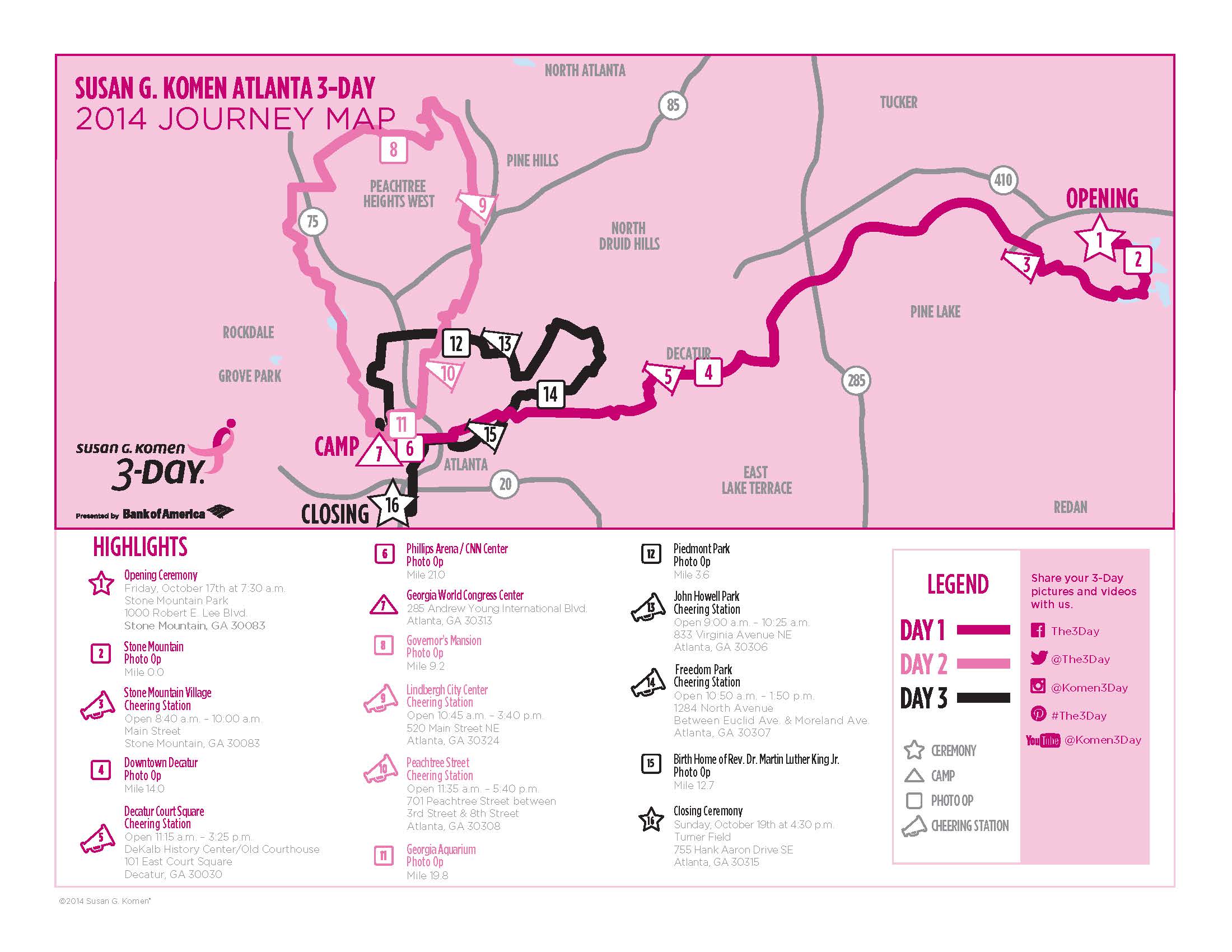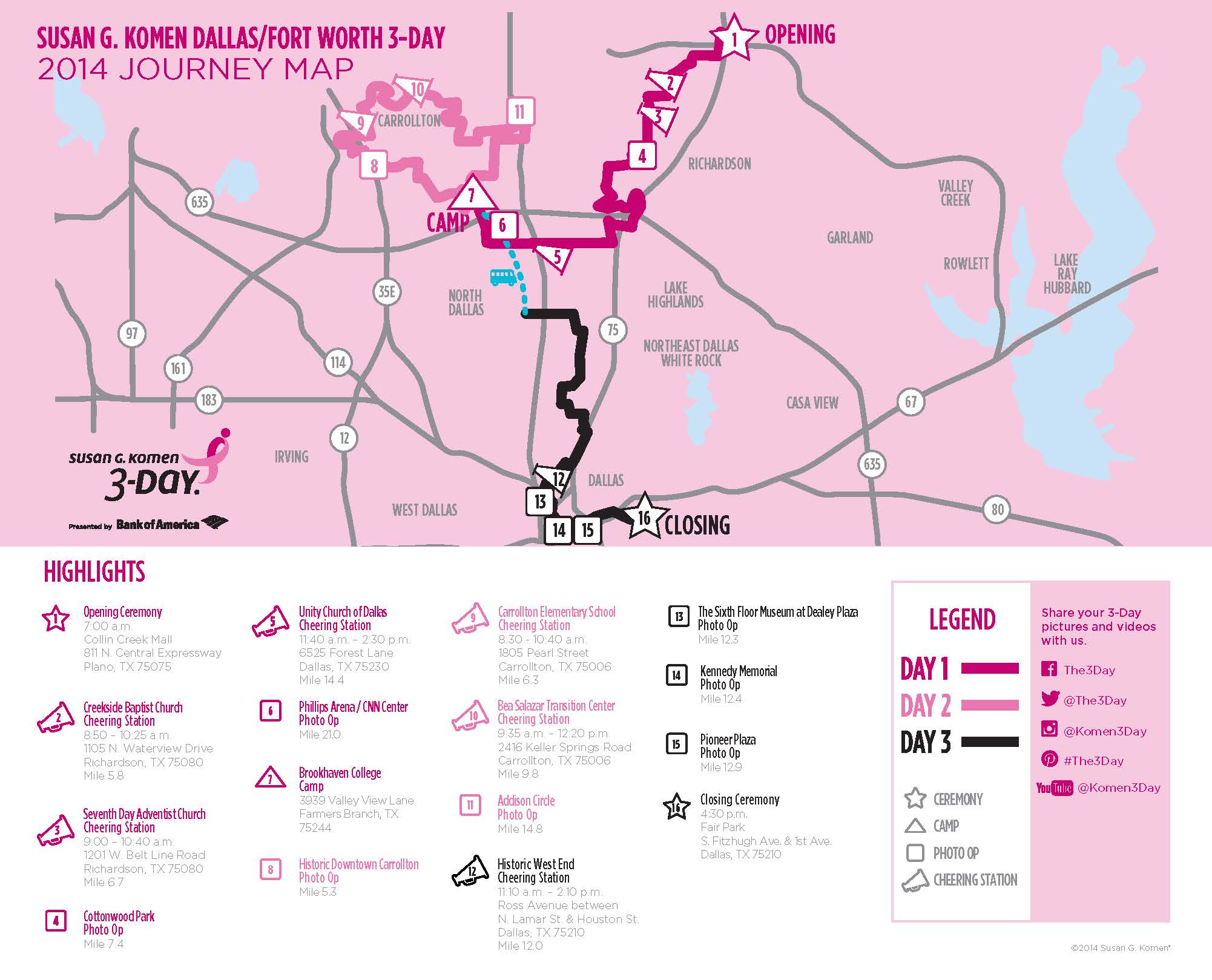Whether you’re a super solo walker or part of a team, there’s no doubt that you’ll have an amazing time on the Susan G. Komen 3-Day®. But if you are looking to captain a team, a handful of our top Komen 3-Day team captains from last year have shared their advice for leading a team to success. Check out what 3-Day® team captains Mary and Roxanne have to say about recruiting new teammates, keeping team members motivated to fundraise and train and engaging with their teams at all points along the way.
 Mary
Mary
Team: No Walker Left Behind (Dallas/Fort Worth)
To recruit new walkers: Have a friendly get together with photos of past events. Put your walking pack, the pins you earned and your fun Komen 3-Day costume on display. Talk about why you do the 3-Day.
To encourage and retain long-time participants: Do something in the off-season. Short walks are a good time to ask potential team members to come out. Keep your training going and register for some fun runs as a team. Keep in touch with your team members; send Christmas and birthday cards.
During the event: Keep track of your team. Eat dinner together, check their tents, show you care. After the event, have an end-of-season get together with family members.
Training: Vary the time and place to keep things interesting, and to figure out what works best for your team members. Get some local running stores to provide water and a restroom stop. Keep the training walks as simple as possible with easy-to-follow directions or maps. Make sure everyone is walking at a comfortable pace and not having to keep up with fast walkers or having to hang back with slower walkers. Ask the faster walkers to sign off when they arrive at the finish if you are not there yet, and be sure you are waiting at the finish for the slower walkers.
Fundraising: When your team members get close to the $2,300 mark, encourage them to raise their goal to $3,000. Ask crew members to help with fundraising efforts to help walkers.
 Roxanne
Roxanne
Team: OB Walkers (San Diego)
If you have a small team of family and friends, it is important to keep in touch and help everyone stay motivated, especially if you have team members who live far apart.
Fundraising: Group fundraisers can be a lot of fun, but they can also be a lot of work, so it is important to delegate tasks to each team member. Realize that the bigger the “team” participation is in a fundraising event, the less each person can realize from the effort. So make it simple. Always decide first and foremost: What will our potential donors like to do, and what will bring them all together to support our team so that we can raise the most amount of money? This sounds simple but can get lost in the excitement to create a special event.
There are plenty of shops, markets and service providers that will donate to your event, so have each person ask five locations for food, raffle items or a donated space. Each team member should have a personal list of friends, family, co-workers and providers that they can draw from as donors. Even if you are a family team, each of you brings a different list of contacts into the mix.
Start fundraising now! November seems like a long way off, but training season starts in June (for our participation in the San Diego event) and you don’t want to spend precious weekend training time on fundraisers. I found it useful to tell donors that my participation is a HUGE commitment but I don’t tell them exactly when the walk is – not for a while, anyway. When you tell your prospective donors in February that you are walking in November, they think they have all the time in the world. So set mini goals and email donors, “My goal this week/month/day is to raise $X.” Set a high personal goal of $5,000 or $7,000 and tell your donors that goal, not that you have to raise $2,300 to walk. This way you will exceed your $2,300 goal more easily.
Training: Training is vital, not only to having fun on the event but also as a way to bond and meet new friends. Get out and try different training walks to see if they are a good fit for you and your team. Short walks can be team-only events where you can share information and ideas, but going out with a larger group for a training walk enhances the experience. If you are new to the 3-Day, training walks are a terrific place to get information about the event, gear, hydration, nutrition and stretching.





